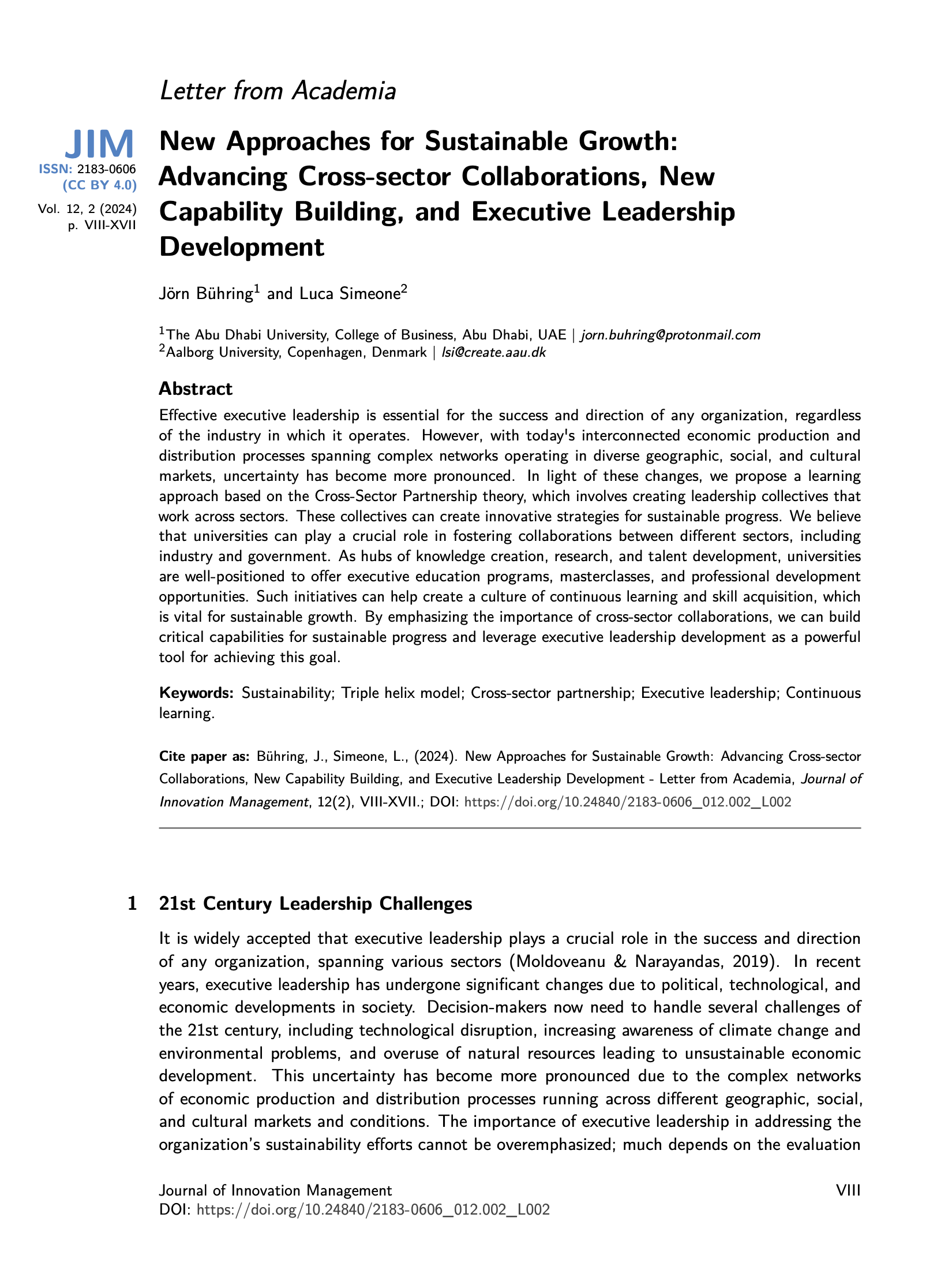New Approaches for Sustainable Growth: Advancing Cross-sector Collaborations, New Capability Building, and Executive Leadership Development
Main Article Content
Abstract
Effective executive leadership is essential for the success and direction of any organization, regardless of the industry in which it operates. However, with today's interconnected economic production and distribution processes spanning complex networks operating in diverse geographic, social, and cultural markets, uncertainty has become more pronounced. In light of these changes, we propose a learning approach based on the Cross-Sector Partnership theory, which involves creating leadership collectives that work across sectors. These collectives can create innovative strategies for sustainable progress. We believe that universities can play a crucial role in fostering collaborations between different sectors, including industry and government. As hubs of knowledge creation, research, and talent development, universities are well-positioned to offer executive education programs, masterclasses, and professional development opportunities. Such initiatives can help create a culture of continuous learning and skill acquisition, which is vital for sustainable growth. By emphasizing the importance of cross-sector collaborations, we can build critical capabilities for sustainable progress and leverage executive leadership development as a powerful tool for achieving this goal.
Article Details
Authors who publish with this journal agree to the following terms:
- Authors retain copyright and grant the journal right of first publication with the work simultaneously licensed under a Creative Commons Attribution License that allows others to share the work with an acknowledgement of the work's authorship and initial publication in this journal.
- Authors are able to enter into separate, additional contractual arrangements for the non-exclusive distribution of the journal's published version of the work (e.g., post it to an institutional repository or publish it in a book), with an acknowledgement of its initial publication in this journal.
- Authors are permitted and encouraged to post their work online (e.g., in institutional repositories or on their website) prior to and during the submission process, as it can lead to productive exchanges, as well as earlier and greater citation of published work (See The Effect of Open Access).

